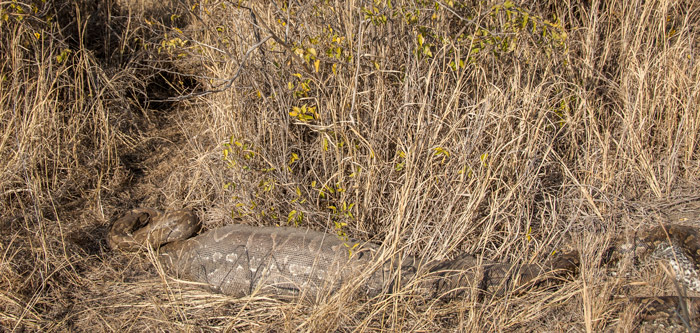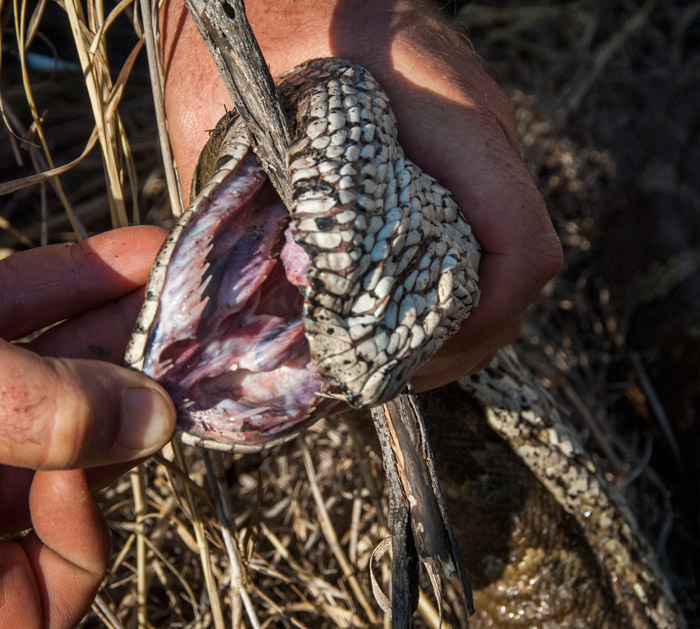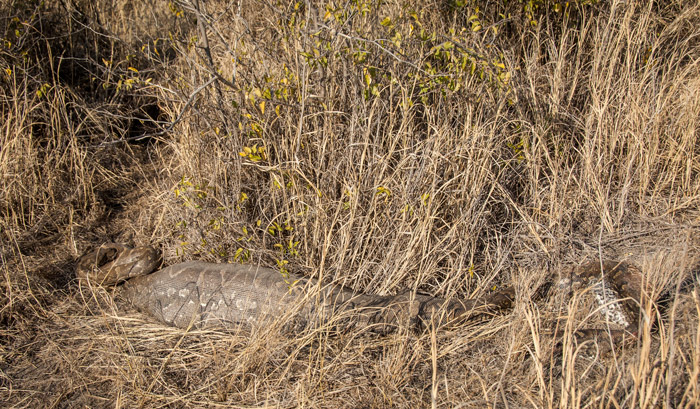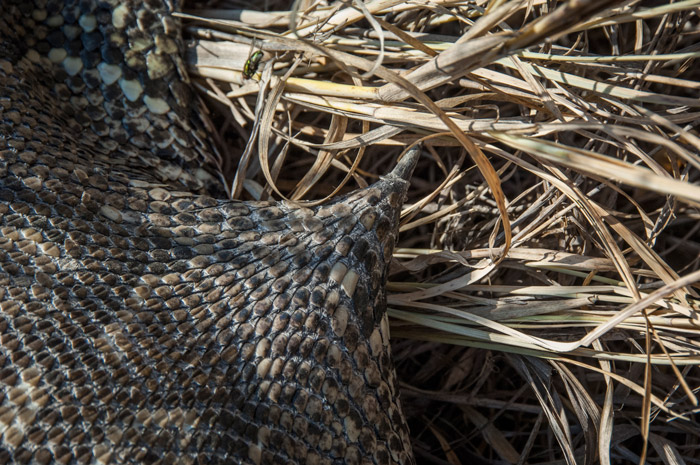During a recent trip to Madikwe Game Reserve, we were tracking lion spoor in the early morning light. The game ranger left the vehicle and followed the spoor that had veered off into the veld. He returned quickly with an excited glint in his eyes that had us all thinking: ‘Yes, lions!’ He informed us that he had not seen the lions but had found something else that was also, apparently, very interesting. The lions had led us to an enormous dead African rock python which was exceptionally fascinating to us as we flicked through pictures on his phone, but not interesting enough for the king of beasts as they had moved on.

Our ranger said we could see it for ourselves. I jumped at the opportunity – my 9-year-old son is mad about snakes, and a sighting like this would make me his heroin.
So, off we went to go and see the snake. When our group descended upon the snake, we fell silent out of respect and amazement for this five-metre-long legend of a snake. We slowly stepped closer to examine the dead python – there were no ants or insects on the snake and minimal signs of decay, so it couldn’t have been dead very long. So, why did it die?


The closer we got, the more we could smell a rotting stench coming from the snake’s middle, which was confusing as the corpse didn’t look old at all. There was fresh jackal spoor around the snake and pieces of flesh missing from the snake’s back where the jackal had begun to eat.



By now, I was truly curious! I wanted to know what happened! This was turning into an episode of bushveld CSI. The ranger pointed out that horns had punctured the snake’s bulging side – whatever the snake had eaten, a small impala or steenbok. That was it; that was how a python this big had died!

My first wild python sighting blew me away: the snake’s size, its exquisite patterns, the colours – just breathtaking and what an unfortunate death, but such is nature.

On my return home, I decided to turn to Facebook for answers. Hopefully, a few reptile specialists would be able to explain what happened.
Johan Marais of African Snake Bite Institute thinks that the snake caught the antelope and was unable to digest it and was trying to regurgitate the meal then his horns punctured his body.
To me, this sounds like what could have happened. The smell was wafting directly from the middle of the snake’s bulging belly, not from the head or where the jackal had begun eating. So, that is probably how the African Rock python died.
To comment on this story: Login (or sign up) to our app here - it's a troll-free safe place 🙂.![]()








